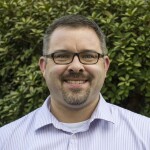This article was initiated and supported by the Scientific Affairs Committee of the American Association of Naturopathic Physicians: Michelle Simon, ND, PhD; Ather Ali, ND, MPH, MHS; Bob Bernhardt, MEd, LLM, PhD; Carlo Calabrese ND, MPH; Michael Cronin, ND; Peter D’Adamo, ND; Bill Walter, ND; and Heather Zwickey, PhD.
For most of human history, most people could not read at all. Literacy was not only a demarcator between the powerful and the powerless; it was power itself.—Ursula Le Guin1
We’re at a critical time in the evolution of naturopathic medicine in the United States. Historically, natural medicine research has been limited, but now that is changing. The evidence base for different therapeutic approaches is growing rapidly. Whole system naturopathic clinical trials have been published showing clinical benefit and cost-effectiveness.2-6 More and more naturopathic students are learning how to conduct research as part of their medical education with the express purpose of building the evidence base for naturopathic medicine practices. As a profession, our research literacy is a key to our growth, providing the basis for interprofession conversations, the skills for accurate interpretations of headline-grabbing medical research, and even the ability to provide evidence to advance naturopathic medical theory. Just as the ability to read was a pathway to power in human history (per author Ursula LeGuin in the quotation above), research literacy is a means to strengthening naturopathic medicine within the current medical system.
The call for research literacy
Research literacy is the ability to access, interpret, and critically evaluate primary medical literature. These skills are not necessarily intuitive, and for most practitioners, they must be systematically taught, practiced, and honed so they can make good use of the available literature. Successful research literacy requires that physicians be familiar with the multitude of available research databases and be able to structure their clinical questions in a way that optimizes searchability and literature retrieval. Once research yields the article of choice, physicians must determine which research question is being asked by the investigators and whether the study design and analysis are appropriate to answer the query. Finally, physicians must decide if the results of the study are clinically meaningful and relevant to their own work in the field.
Research literacy allows us to partake in a larger conversation about which studies are needed to best advance naturopathic practice and further our professional development.
If the definition of research literacy sounds suspiciously like evidence-based medicine, it’s because the two are inexorably linked. Terms such as evidence-based medicine and evidence-informed practice (EIP) make many of us anxious, but EIP is a part of conventional biomedical culture, and as such, part of the healthcare system at large. As naturopathic medicine continues to strive for a dedicated position within this system, there have been repeated calls to apply EIP to our profession. What does it mean to apply EIP to naturopathy? Is it possible to do so while preserving our philosophical commitments?
Evidence-informed practice: a holistic decision-making paradigm
It is a common misconception that EIP means that a practitioner uses only modalities or treatments that have been proven effective by empirical means. Not only is this definition incorrect, it's inappropriate and unrealistic for any branch of medicine: naturopathic, conventional, or otherwise. EIP is defined as the integration of clinical expertise, patient values, and research evidence into the decision-making process for patient care.7,8 Thus, EIP incorporates multiple ways of knowing in order to determine the best course of medicine for a patient. From this perspective, EIP may be considered a holistic approach to decision-making. One of our core naturopathic principles guides us to “treat the whole person,” in mind, body, and spirit. EIP encourages practitioners to honor the information gathering and decision-making process in a similar way by involving patient, practitioner, and research.
The success of holistic decision-making, however, relies on a minimum level of research literacy. Physicians must be able to access, interpret, and critically appraise the medical literature in order to combine this information with clinical expertise and patient values in a meaningful way. We would never treat mind and body while ignoring the spirit. In this same way, we shouldn’t rely solely on tradition and patient choice without updating our work with current knowledge and discoveries.9 Thus, we have a responsibility to learn, practice, and hone our research literacy skills, not in spite of, but in support of our philosophical commitments.
In addition to informing clinical decision-making, research literacy allows us to appropriately educate our patients about the research they dig up. Being research literate is the only way to discriminate between high-quality and substandard studies, between clinically meaningful and irrelevant results. When we are able to effectively engage with research in this way, we take responsibility for patient care and our profession in an entirely new fashion. Only by understanding the context within which research was created can we tease apart contradictory results, identify a study’s bias, or recognize overstated conclusions. If we can’t critically evaluate research, we risk misinterpreting results and putting patients at risk. In contrast, when it’s used effectively, this kind of evidence-informed practice can enrich and empower our clinical and professional experience.
Advancing the profession
This shift in our relationship to research will improve our professional credibility and advance naturopathic medicine on a national and even global scale. Research literacy allows us to partake in a larger conversation about which studies are needed to best advance naturopathic practice and further our professional development. Research is a common language among medical professionals, and actively participating in these conversations can increase collaboration across professions and further naturopathic inclusion in conventional healthcare-delivery systems.10
Multiple global initiatives attempt to regulate natural medicine practice. As each nation determines what “natural medicine” means within its borders,11 naturopathic physicians working abroad must be an active part of this conversation. Sharing and being able to adequately discuss quality research can help negotiate working relationships with policy-makers and governmental bodies, further legitimizing naturopathic work in international settings. When “lack of evidence” is cited as a reason for not integrating naturopathic medicine into mainstream care, we will be able to counter those arguments with high-quality research.
An invitation
Our ability to critically appraise and communicate research findings with our patients and other healthcare professionals improves the value of our clinical work, increases interdisciplinary collaboration, and advances naturopathic medicine as a whole. Yet anyone who has ever taken a research course knows that interpreting and evaluating the medical literature is a “use it or lose it” skill set. Therefore, we invite you, our naturopathic colleagues, to commit to establishing, practicing, and refining your own research literacy on a daily basis. Research literacy is power. You can’t navigate the conversation if you don’t speak the language, and this is one conversation we can’t afford to miss.
Editor’s note: This is the first article in a series that aims to empower naturopathic physicians in interpreting the medical literature with confidence. Upcoming articles will include discussions on how to critically evaluate a peer-reviewed research article and about continuing education opportunities to build evidence-informed practices skills.








